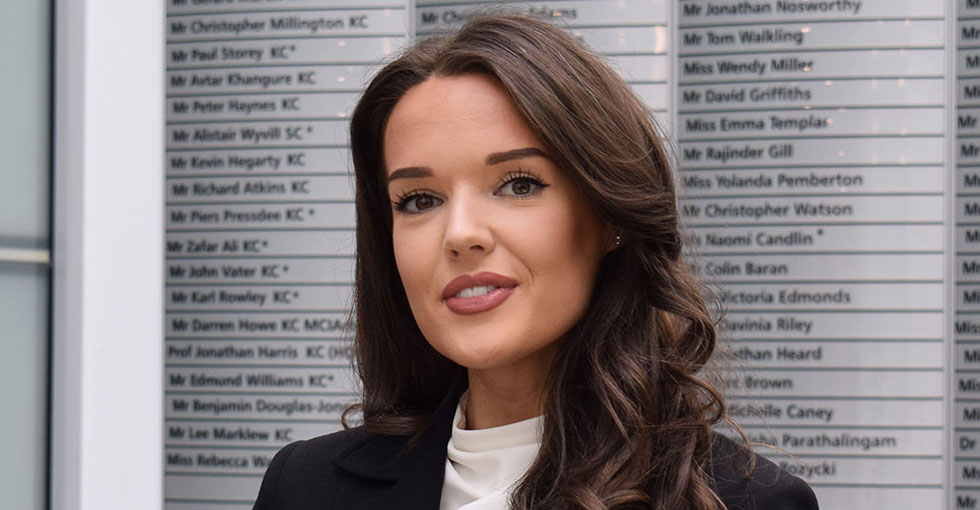by Molly Giles, Barrister.
In the current climate the court and all parties are having to grapple with the thorny issue of the appropriateness for a family law hearing to proceed remotely; particularly concerning contested issues.
Experience would suggest that the court is increasingly confident at dealing with contested issues on submissions, not least because much of that which needs to be said can be reduced to written argument in advance of a hearing.
Where evidence is required, the issue becomes more anxious.
Useful information has been communicated in the letter from the Lord Chief Justice, Master of the Rolls and President of the Family Division to judges on 9th April 2020 in which a number of parameters were suggested to assist the court in deciding whether or not to conduct a remote hearing. https://www.judiciary.uk/wp-content/uploads/2020/04/Message-to-CJJ-and-DJJ-9-April-2020.pdf.
It is suggested that where only expert medical evidence is to be called or the only witnesses are the social worker and the guardian (with limited factual issues) there is the possibility for the hearing to be conducted remotely. Whereas in all other cases where the parents or other lay witnesses are to be called, the case is unlikely to be suitable for remote hearing.
As would be expected, the decision whether to proceed remotely will be taken on a case by case basis dependent on the specific factors at play.
The recent decision of the President, Sir Andrew McFarlane in Re: P (A Child: Remote Hearing) [2020] EWFC 32 sets out: “The decision whether to hold a remote hearing in a contested case involving the welfare of a child is a particularly difficult one for a court to resolve. A range of factors are likely to be in play, each potentially compelling but also potentially at odds with each other. The need to maintain a hearing in order to avoid delay and to resolve issues for a child in order for her life to move forward is likely to be a most powerful consideration in many cases, but it may be at odds with the need for the very resolution of that issue to be undertaken in a thorough, forensically sound, fair, just and proportionate manner. The decision to proceed or not may not turn on the category of case or seriousness of the decision, but upon other factors that are idiosyncratic of the particular case itself, such as the local facilities, the available technology, the personalities and expectations of the key family members and, in these early days, the experience of the judge or magistrates in remote working. It is because no two cases may be the same that the decision on remote hearings has been left to the individual judge in each case, rather than making it the subject of binding national guidance.” [paragraph 24]
However, an emerging theme from the guidance is that fairness remains at the forefront of the court’s mind.
Many of us were chastened to read the experience of a lay party to litigation in the Court of Protection; the experience was clearly distressing and practitioners will must keep in mind the need to maintain the professionalism and dignity that is necessary in difficult family proceedings. This is essential reading and can be found at www.transparencyproject.org.uk/remote-justice-a-family-perspective
The detail of the decision in Re P (A Child: Remote Hearing) bears further consideration.
The matter concerns care proceedings in which the central issue is whether the child has suffered significant harm as a result of fabricated or induced illness. The matter was listed for a composite hearing to determine factual disputes and the welfare options for the child. There had already been an abortive hearing in autumn 2019 with care proceedings having been extant since April 2019 (and previous private law litigation before that). The matter was re-listed for 15 days to start on 20th April 2020. The child resides in a temporary ‘holding’ placement with a family friend. On her behalf, there was anxiety expressed about an urgent need to settle her living arrangements.
There is implication in the judgment that there does not merely need to be consideration as to whether a hearing can take place remotely (for example technologically or logistically) but whether it should be conducted remotely [paragraph 8].
The complexity of the issues for the court to determine is plainly at the forefront of the Judge’s consideration when he states, in relation to the issues in this case that “It is a type of hearing which, certainly at first blush, seemed to be well outside the categories of hearing which could be contemplated as being appropriate for remote hearings before the Family Court. I make that observation in the narrow context of this being an allegation of FII. That category of case is a particular form of child abuse which requires exquisite sensitivity and skill on the part of the court” [paragraph 12]
Of potential applicability in a wider set of cases is the President’s observation that “it is a crucial element of the judge’s analysis for the judge to be able to experience the behaviour of the parent who is the focus of the allegations throughout the oral court process; not only when they are in the witness box being examined and cross-examined, but equally when they are sitting in the well of the court and reacting, as they may or may not do, to the factual and expert evidence as it unfolds during the course of the hearing” [paragraph 12].
The Local Authority, supported by the Guardian, were keen to emphasise that firstly all the witnesses were well placed to give evidence remotely and could be properly orally examined by each party. Secondly, and more importantly, issue was raised about the impact of an indefinite adjournment upon a child who is currently in limbo.
However, notwithstanding that concern, the Judge found in favour of the proposal for an adjournment persuaded by a combination of the following.
Firstly that the mother was said to be experiencing symptoms that could be related to Covid-19 and the court considered it was “more than can be properly asked” of a member of solicitors’ staff to have to be physically present with the mother to provide her with professional and human support as well as technological assistance. The court was therefore faced with the mother participating alone from her own home, joining via Skype using her own basic internet connection.
Secondly, the President emphasised his own guidance that he issued on 27th March 2020 namely “Can I stress, however, that we must not lose sight of our primary purpose as a Family Justice system, which is to enable courts to deal with cases justly, having regard to the welfare issues involved [FPR 2010, r 1.1 ‘the overriding objective’], part of which is to ensure that parties are ‘on an equal footing’ [FPR 2010, r 1.2]. In pushing forward to achieve Remote Hearings, this must not be at the expense of a fair and just process.”
The President’s focus on fairness continued with it being set out that: “The judge who undertakes such a hearing may well be able to cope with the cross-examination and the assimilation of the detailed evidence from the e-bundle and from the process of witnesses appearing over Skype, but that is only part of the judicial function. The more important part, as I have indicated, is for the judge to see all the parties in the case when they are in the courtroom, in particular the mother, and although it is possible over Skype to keep the postage stamp image of any particular attendee at the hearing, up to five in all, live on the judge’s screen at any one time, it is a very poor substitute to seeing that person fully present before the court. It also assumes that the person’s link with the court hearing is maintained at all times and that they choose to have their video camera on. It seems to me that to contemplate a remote hearing of issues such as this is wholly out-with any process which gives the judge a proper basis upon which to make a full judgment. I do not consider that a remote hearing for a final hearing of this sort would allow effective participation for the parent and effective engagement either by the parent with the court or, as I have indicated, the court with the parent. I also consider that there is a significant risk that the process as a whole would not be fair.” [paragraph 26]
Therefore, whilst the court recognises that multiple factors will be at play, it is helpful to recognise the degree to which physical participation of the parties assists the court in making a just and proper determination about the facts and the issues in the case – clearly the element in which every party is invested.










